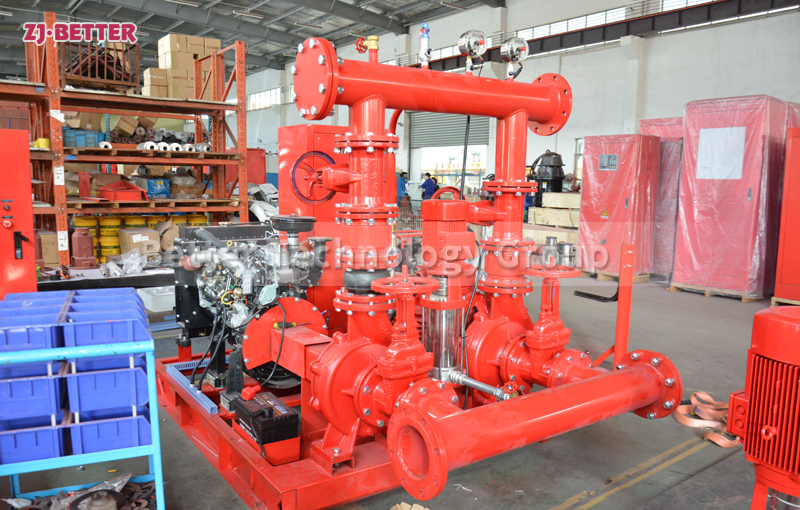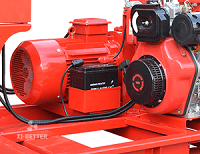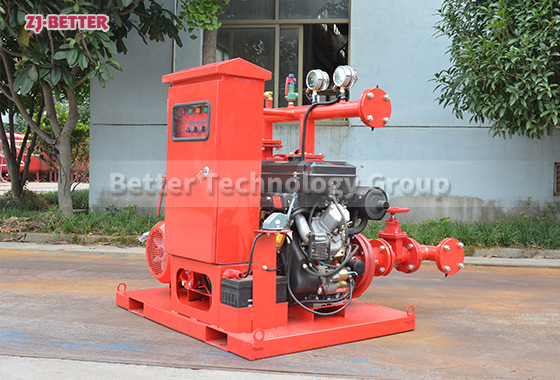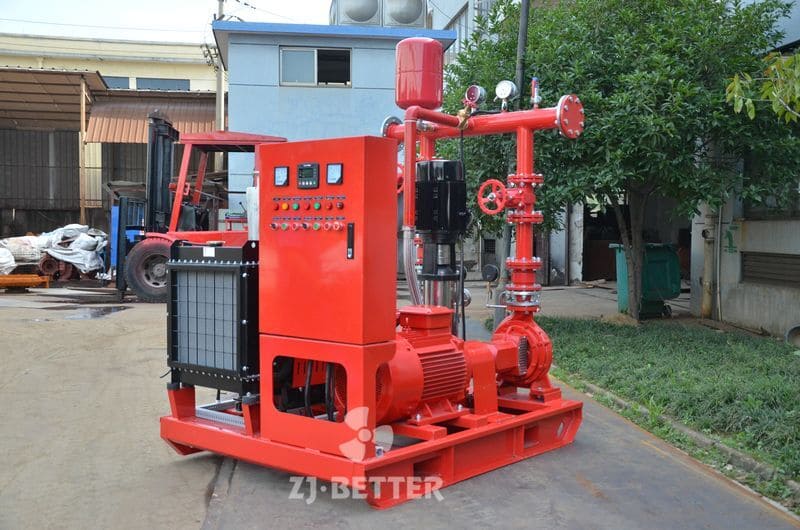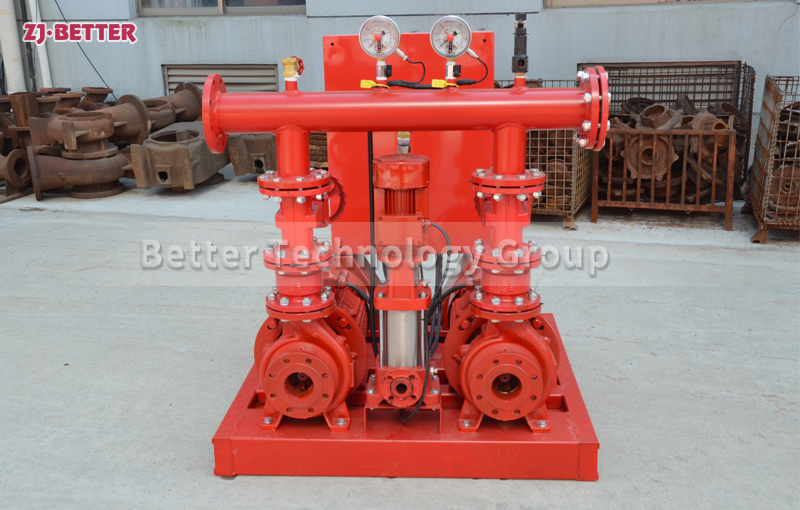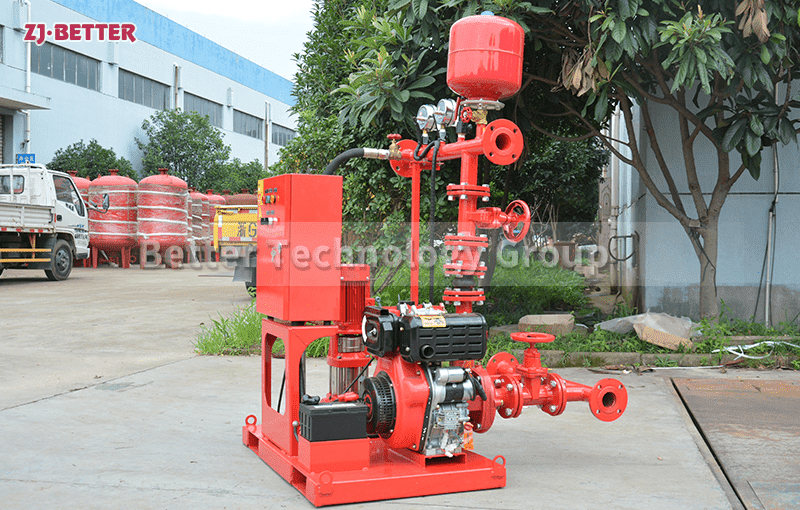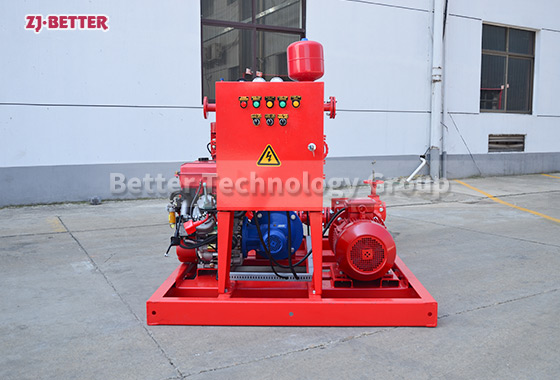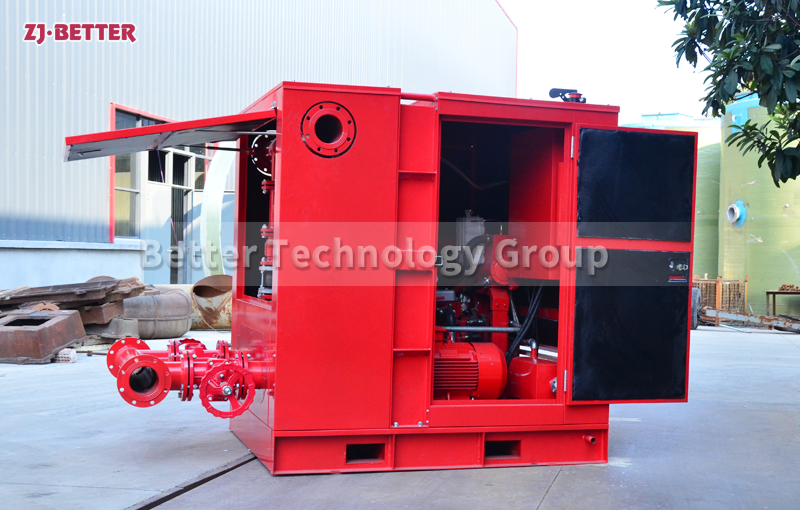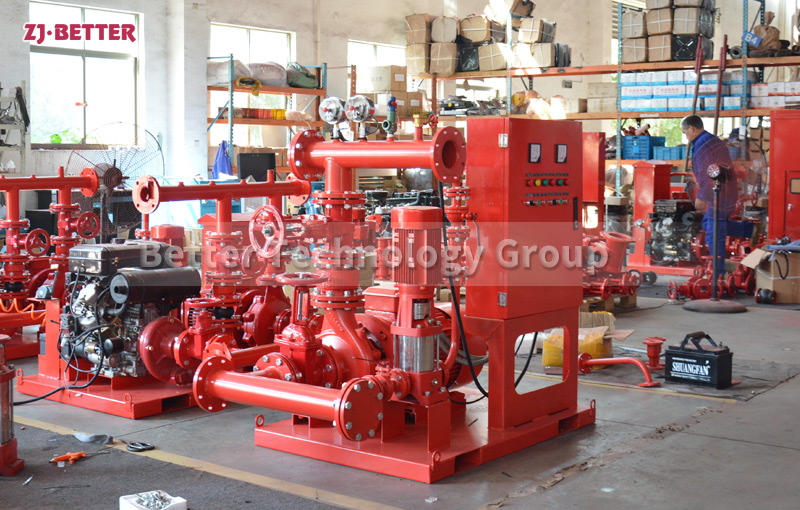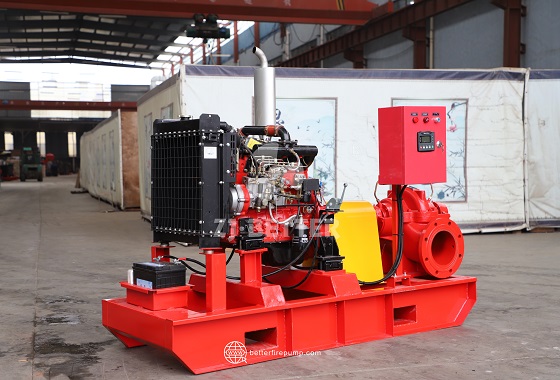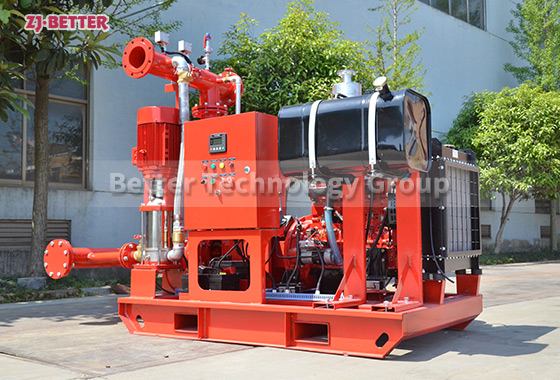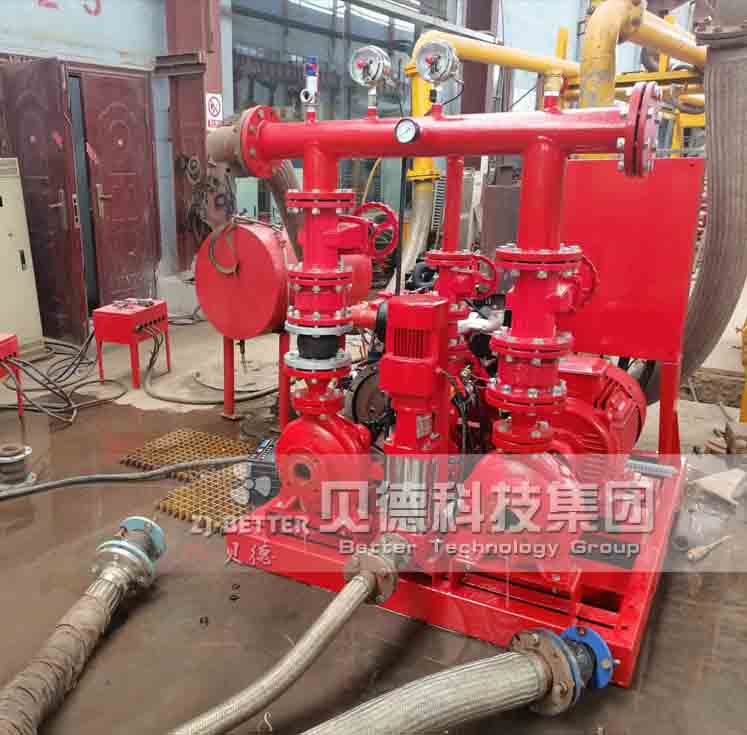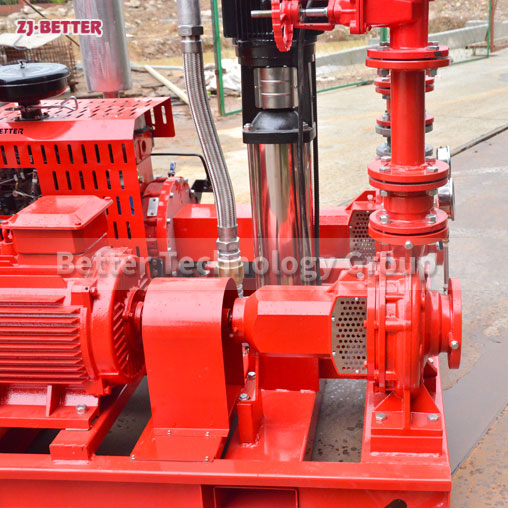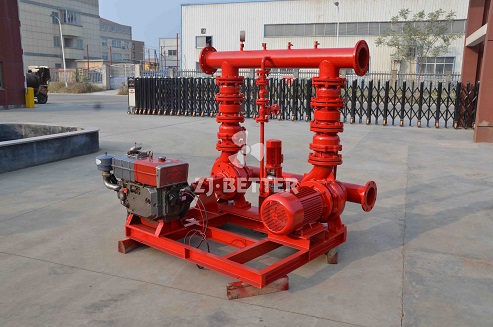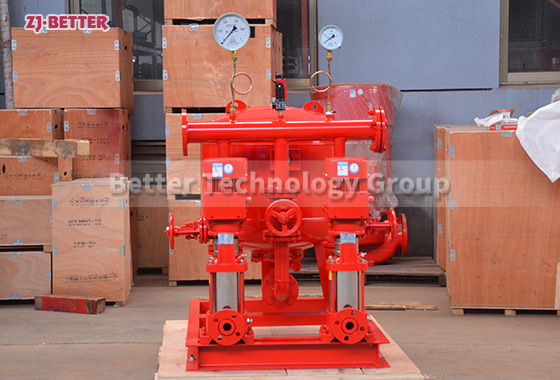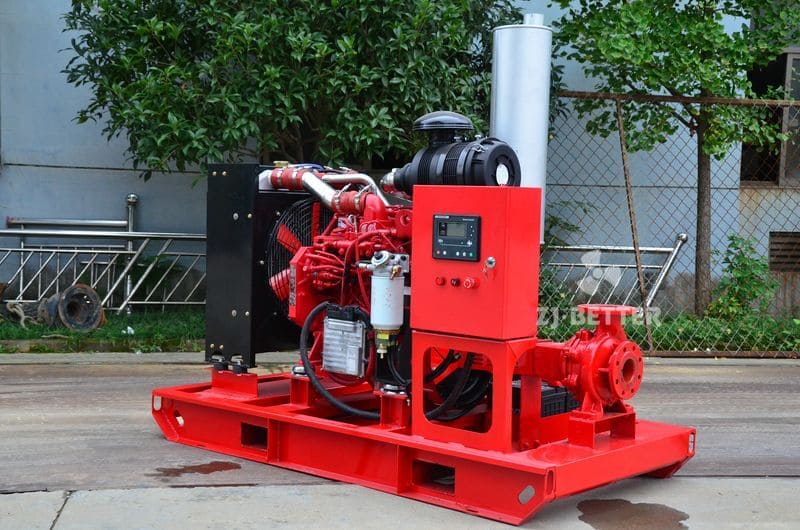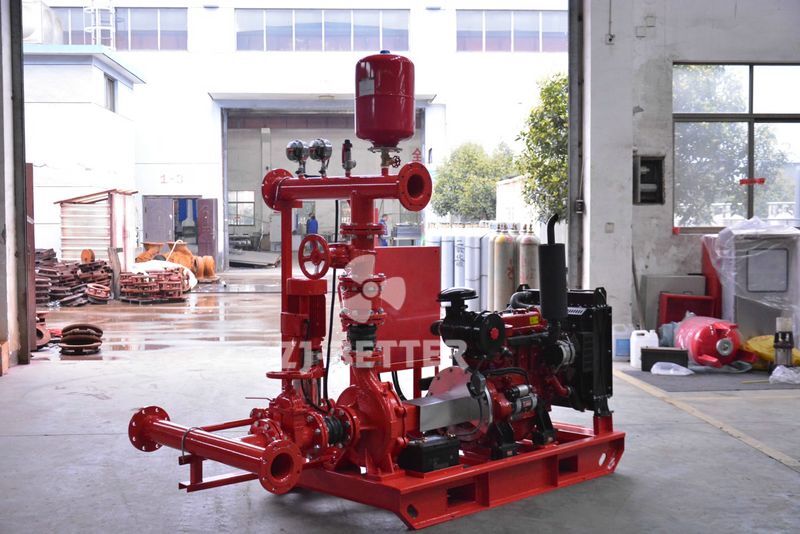Importance of complete fire pump sets (electric, diesel and jockey pumps)
Fire pumps are part of the water supply to a fire sprinkler system and are powered by electricity, diesel or steam. The pump inlet is either connected to a public groundwater supply or to a static water source (e.g. tank, reservoir, lake). This pump provides higher pressure water flow to sprinkler system risers and hose risers.
Fire pumps are required when the local water system cannot provide enough pressure to meet the needs of the fire sprinkler system. This usually occurs in high-rise buildings, or in systems that supply large quantities of water, such as in storage warehouses. A fire pump is also required if the water supply is provided from an above ground storage tank.
The fire pump is activated when the pressure in the fire sprinkler system falls below a threshold, usually caused by the release of water from one or more fire sprinklers or the opening of other fire connections, resulting in a drop in pressure in the fire main.
Fire pumps are usually powered by electric motors or diesel engines. Electric fire pumps may require the installation of emergency generators if necessary. Fire pumps are commonly found in offices, hospitals, airports, manufacturing facilities, power stations, pharmaceutical facilities, schools/colleges and warehouses.

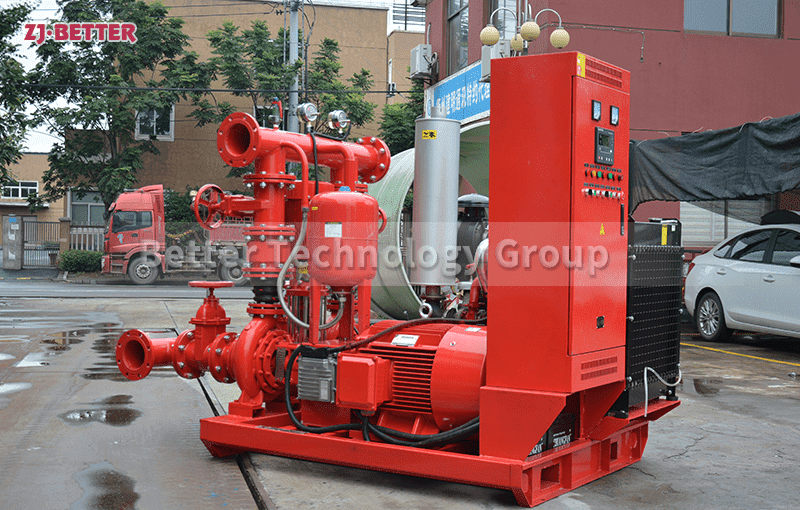

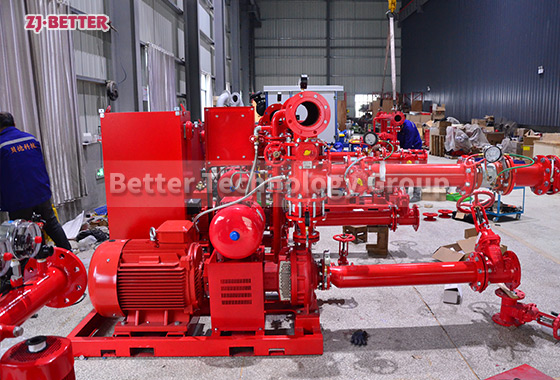
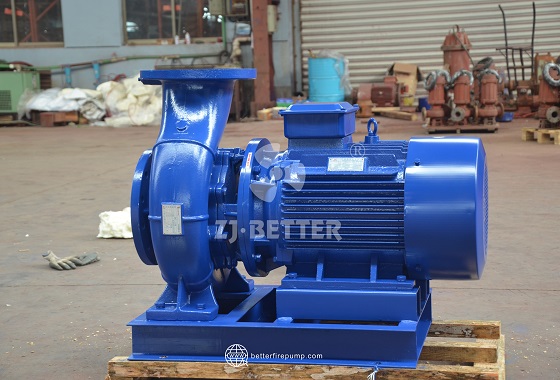
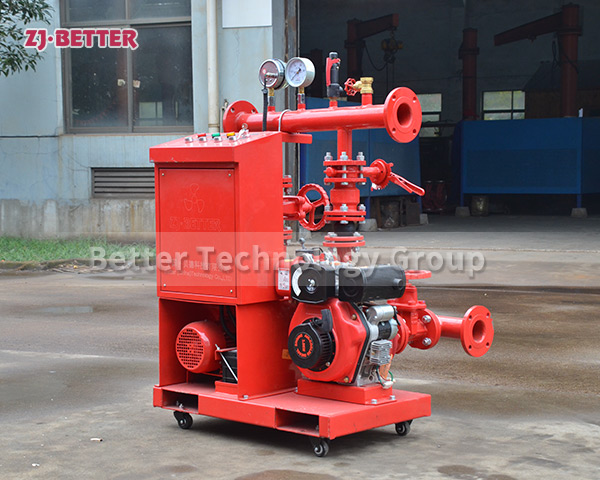


.jpg)
